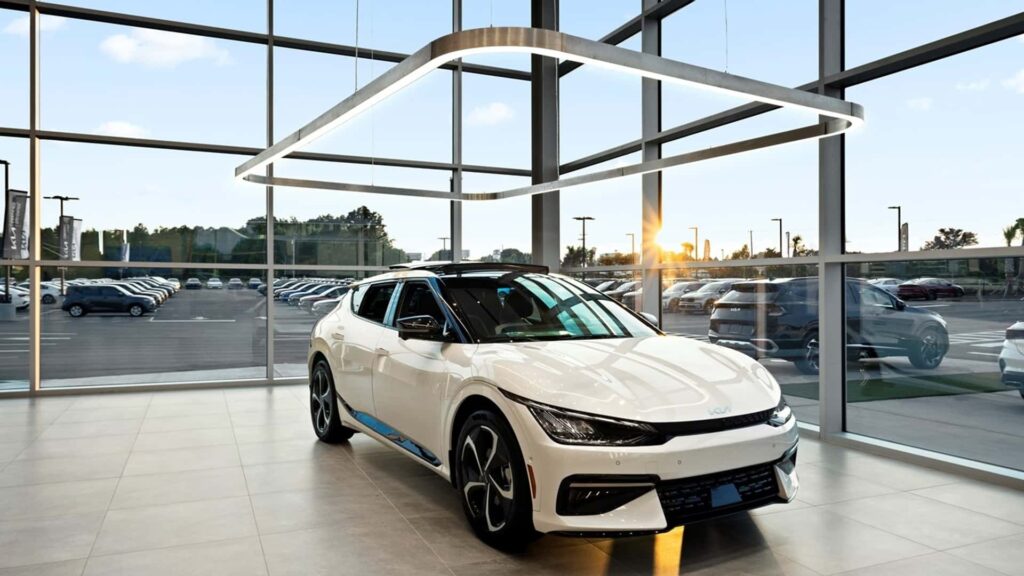Car dealerships across the country are buzzing with excitement over the return of President Donald Trump. A recent survey conducted by Automotive News revealed that 64% of dealerships believe that the new administration will have a positive impact on their business. The main reason for their enthusiasm is the anticipated rollback of federal emissions standards, particularly because dealerships have struggled to sell electric vehicles (EVs) in the past.
The reluctance to sell EVs stems from a combination of factors. Dealerships have often been burdened with unsellable EV models, resulting in financial losses. Customers have also shown little interest in EVs, with 65% of dealers reporting low demand for these vehicles. In fact, a group of 4,700 dealers penned a letter to President Joe Biden expressing concerns about meeting aggressive EV goals, citing issues such as inadequate charging infrastructure and lack of consumer demand.
Furthermore, dealerships have a financial incentive to steer customers away from EVs. A significant portion of their profits come from servicing vehicles, and EVs require less maintenance compared to traditional internal combustion cars. With fewer opportunities for customer-paid work on EVs due to reduced failure points and longer-lasting components, dealerships face a potential decline in revenue.
While EVs may have fewer maintenance needs, they often present unique challenges for dealerships. Common issues such as electronic malfunctions and software glitches require extensive warranty work, resulting in minimal financial returns for dealers. As a result, EV customers are not viewed as ideal clients by dealerships due to the lack of profitability associated with selling and servicing EVs.
The anticipated rollback of emissions standards under the Trump administration is seen as a welcome relief by dealerships, as it would alleviate the pressure to ramp up EV sales. This would give dealerships more time to focus on their internal combustion business and await the launch of more profitable and desirable vehicles. However, potential tariffs proposed by Trump could have a negative impact on dealerships, as most vehicles are imported from Mexico or Canada, leading to an estimated $3,000 increase in average vehicle prices.
Ultimately, dealerships are eager to support any administration that allows them to continue selling profitable vehicles without the need for significant adaptation or growth. The alignment of their interests with the Trump administration’s policies reflects their desire to maintain the status quo and sustain their lucrative business model.
In conclusion, the automotive industry is poised for a period of transition as dealerships navigate the evolving landscape of EVs and emissions regulations. The delicate balance between profitability and sustainability will continue to shape the future of car dealerships in the United States.

